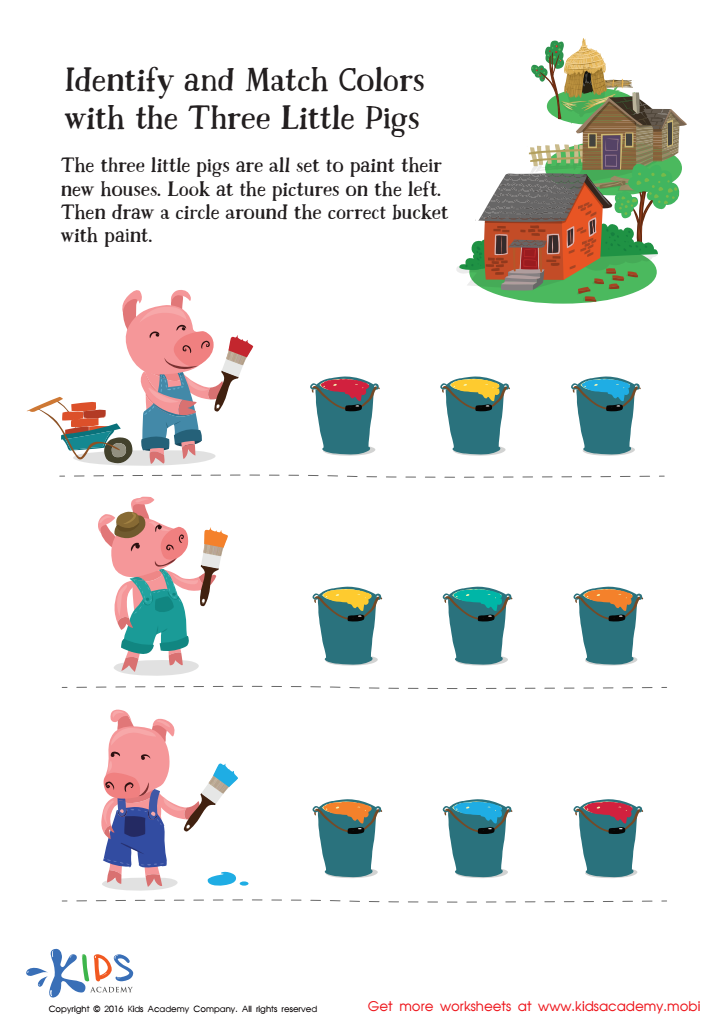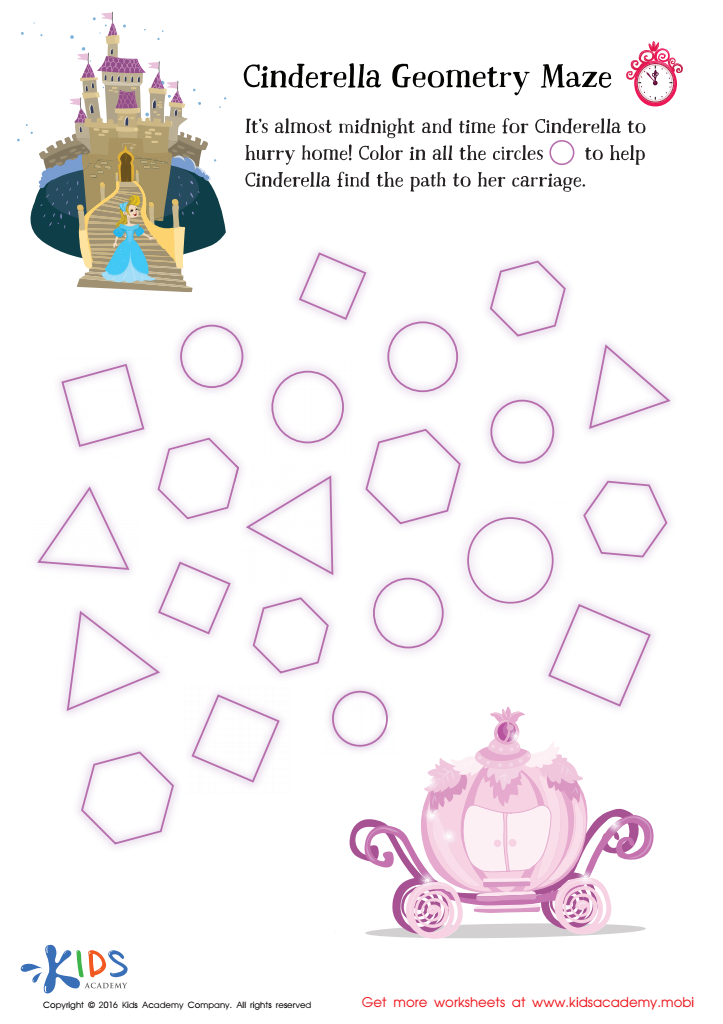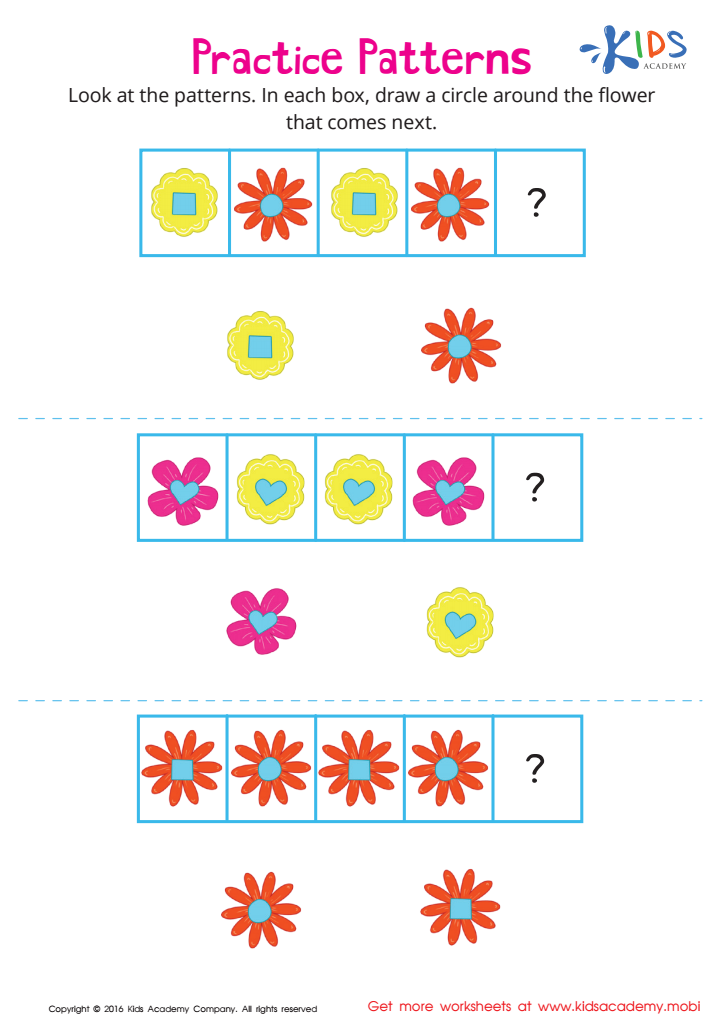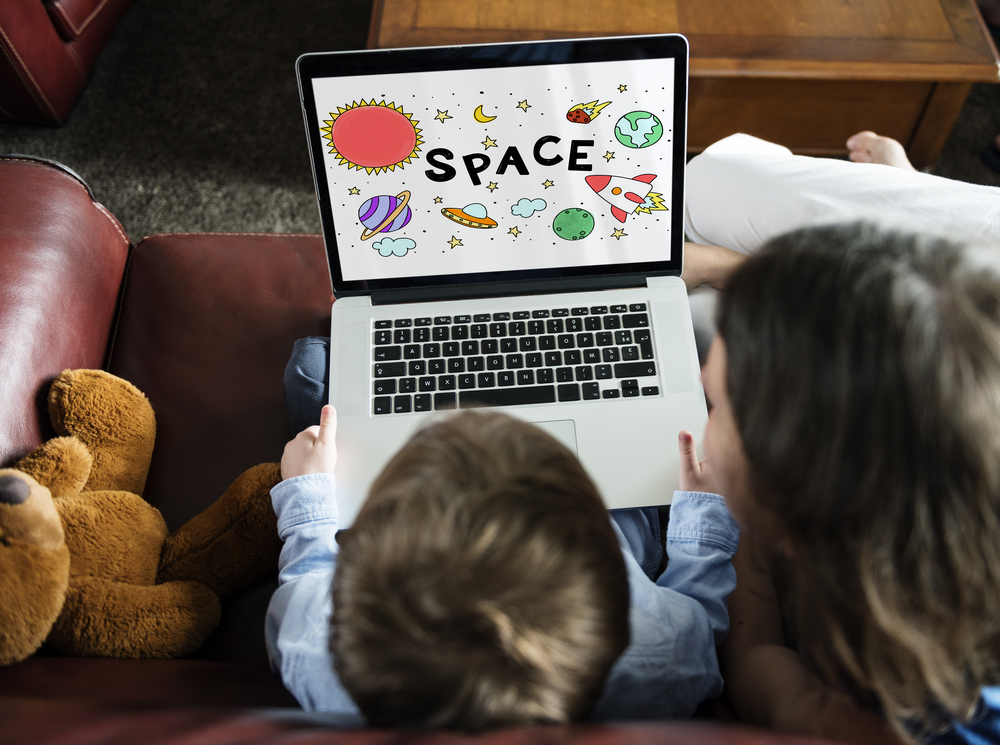Logical thinking Normal Matching Worksheets for Ages 5-8
3 filtered results
-
From - To
Enhance your child's cognitive skills with our Logical Thinking Normal Matching Worksheets designed for ages 5-8. These engaging and educational worksheets encourage critical thinking and problem-solving through fun matching exercises. Children will enjoy connecting related images, words, and concepts, fostering their understanding of logical relationships. Ideal for classrooms or at-home learning, these worksheets support early math skills while promoting concentration and creativity. Perfect for parents and educators seeking interactive ways to develop logical thinking abilities, our worksheets align with age-appropriate learning standards. Download now to embark on an exciting journey of learning that equips young minds for future challenges!


Fairy Tale Worksheet: Identify and Match Colors with Three Little Pigs


Cinderella Geometry Maze Worksheet
Logical thinking and normal matching skills are crucial for children ages 5-8 as they provide the foundation for critical cognitive development. At this age, children are beginning to explore relationships and patterns, which enhances their problem-solving abilities. Logical thinking fosters reasoning skills, enabling children to make sense of the world around them. It allows them to connect ideas, draw conclusions, and understand cause-and-effect relationships, which are essential for academic success and daily life decisions.
Normal matching activities encourage children to recognize similarities and differences in objects, symbols, or concepts. This skill is integral to literacy and numeracy, as it aids in pattern recognition, categorization, and analytical thinking. For example, recognizing letters that are the same or identifying shapes helps children with reading and math readiness.
Parents and teachers should prioritize these skills, as they contribute significantly to a child’s confidence and independence in learning. Engaging children in activities that promote logical thinking and matching will not only enhance their cognitive skills but also make learning fun and engaging. Early investments in these areas set the stage for lifelong critical thinking skills, better academic performance, and effective problem-solving abilities in future stages of their education and beyond.

 Assign to My Students
Assign to My Students

















